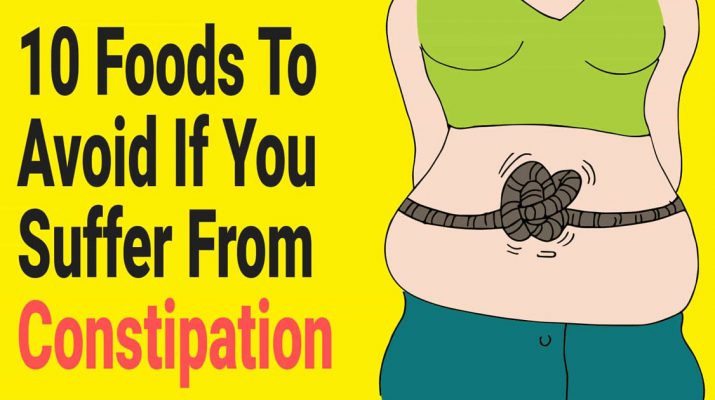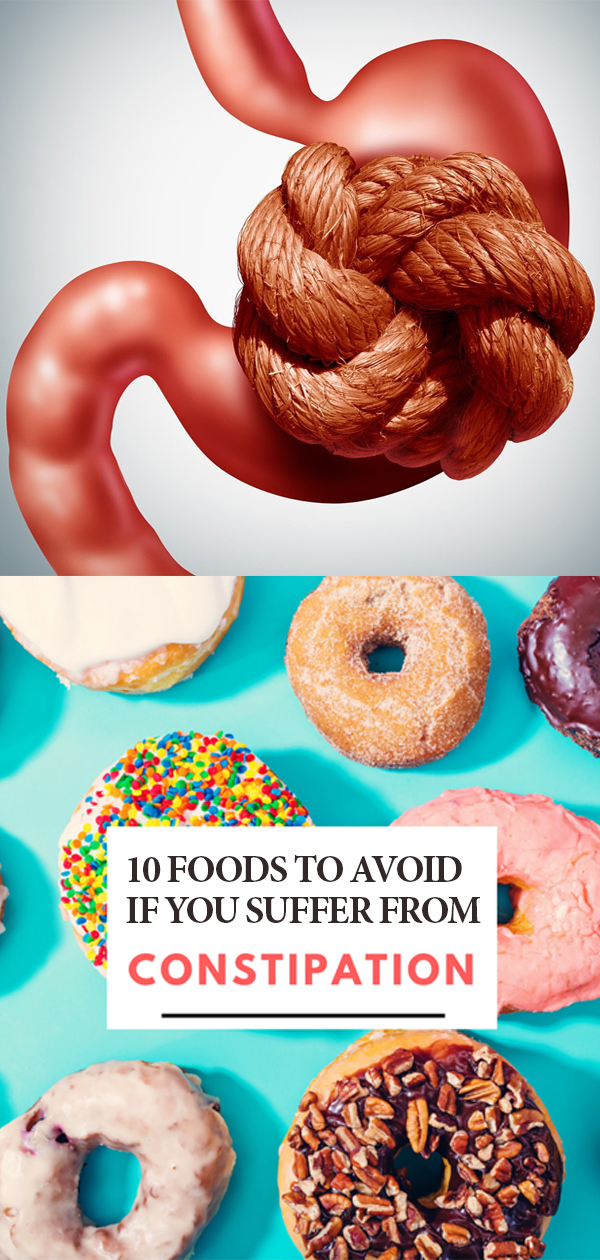Constipation: An Overview
Constipation is an interruption to regular bowel movements that results in difficulties passing stool. Having fewer than three bowel movements a week or a significant decrease in the frequency of the typical number of bowel movements over that period meets the diagnosis criteria for constipation. Of course, the frequency of bowel movements can be highly subjective, as it can vary widely from person to person.
Physical complications that lead to constipation symptoms originate in the large intestine (colon). During digestion, food moves through the gastrointestinal (GI) tract, absorbing food and nutrients to be delivered throughout the body via the blood stream. Well, when the colon absorbs too much water, waste moving through the colon doesn’t get the moisture it needs to pass effectively. As a result, it takes much longer for food to pass through the colon, resulting in dry, hard stool. Often, however, stool is unable to be passed at all.
Constipation is a prevalent, typically acute condition, affecting nearly everyone at some point. Demographically, women, children, and adults over the age of 65 tend to experience constipation more frequently than others. Per the National Health Service (UK), one in every seven adults and one in every three children have constipation at any given time.
Constipation is rarely a serious condition, though the symptoms can be quite uncomfortable. Constipation can be of an acute (short-term) or chronic (long-term) nature.
“Constipation can occur in babies, children, and adults. It’s estimated that around 1 in every 7 adults and 1 in every 3 children has constipation at any one time.” – NHS Inform (source)
Causes
The leading causes of acute constipation include:
- Lack of fiber in one’s diet
- Change to one’s dietary habits
- A sudden change in lifestyle
- Mood disorders, particularly anxiety and depression
- Not drinking enough water (dehydration)
- Ignoring the need to defecate
- Frequent exposure to stress
- Side effects of medications such as beta-blockers and antidepressants
Chronic constipation frequently stems from a health issue affecting the colon and rectum. Pelvic muscle abnormalities or a hormonal imbalance may also serve as causes for this chronic issue. Neurological problems including autonomic neuropathy, multiple sclerosis, Parkinson’s disease, stroke, and spinal cord injury can damage nerves in the colon and rectum, resulting in chronic constipation.
The pelvic muscles also play a role in the passing of a bowel movement. Not being able to relax and contract these muscles, or muscle weakness in the pelvic area can cause chronic constipation. These conditions are known as anismus and dyssynergia, respectively.
Finally, hormonal complications from medical conditions (disease and non-disease) can lead to chronic constipation. These include diabetes, hyperthyroidism, pregnancy, and hypothyroidism.
Risk Factors
Some things increase the risk of developing constipation, including:
- Anxiety, fear, or worry
- Autoimmune disorders (e.g., lupus)
- Childbirth
- Cancer
- Changes to bowel movements
- Certain medications, including antidepressants, calcium channel blockers, and prescription pain relievers
- Diabetes
- Inadequate or unhealthy diet
- Intestinal complications (e.g. irritable bowel syndrome or inflammatory bowel disease)
- Lack of exercise or physical movement
- Lupus
- Muscle disorders
- Neurological disorders
- Pregnancy
The Role Of Food In Constipation
As you most likely know, food plays a significant role in the development – and prevention – of constipation. Here are 10 foods and food types that you should avoid if you’ve had constipation troubles (and what do):
-
Alcohol
As mentioned, food and waste require water to move normally through our intestines. When lacking H2O, digestion in this area slows. Well, since alcohol consumption drastically increases the risk of dehydration, it is more likely that one will develop constipation.
What to do: If you must drink (and who doesn’t on occasion?) do yourself a favor and keep a water bottle handy (just don’t forget actually to drink from it!) If you’re feeling superhero-ish, strongly restrict your drinking or abstain from the bottle altogether for a predetermined length of time.
-
Dairy Products
Milk, cheese, ice cream, and most other dairy products are both high in fat and low in fiber. This nutritional composition isn’t ideal for our tummies – and can lead to constipation. Lactose intolerance, a condition that may affect up to 70 percent of us, may also cause constipation.
What to do: It’s best to look for dairy that is low in fat and sugar. Also, try to limit dairy products to a maximum of three servings daily.
-
Frozen Dinners
Frozen dinners are “Exhibit A” in the case against the Western diet. Most frozen foods (not all) are packed with fat, salt, and empty calories. Fat increases feelings of satiety while sodium promotes dehydration. Both factors significantly increase the odds of developing constipation. Not to mention that frozen dinners are also loaded with additives and preservatives.
What to do: Frozen dinners are attractive because of their convenience, which is totally understandable. Just please keep in mind that there are plenty of healthier frozen dinner choices. Per WebMD, the following brands are the best bets:
- Michelina’s Budget Gourmet
- Lean Cuisine
- Smart Ones
- Healthy Choice
-
Cookies And Other Pastries
Cookies – along with other pastries such as cakes – lack water content while they are also high in fat and low in fiber. Basically, these foods are some of the worst for overall health and digestion.
What to do: Pastries and baked goods are best consumed in strict moderation. Fresh fruits will also satisfy your sweet tooth and provide much less fat. The high fiber content of fruit also helps digestion.
-
Fast/Fried Foods
Both fast and fried foods can cause constipation due to their high fat content, near-absence of fiber, and empty calories. The adverse effect that fried foods have on digestion is compounded in that they effectively replace more nutrition foods. That is, lunch at a fast food place isn’t considered “lunch” by your body. The body needs a certain dose of nutrients of which it is being deprived.
What to do: Eat fast and fried foods on rare occasions. If you must eat out, opt for a healthier option like a salad with low-fat dressing. Hold off on the soda and instead opt for water.
-
Potato Chips And Other High-Fat Snacks
Foods that are high in fat, healthy or unhealthy, promote feels of fullness. People who eat too many high-fat snacks often do so are the expense of healthy fats and other digestion-aiding foods.
What to do: First, limit snacks to the rare occasion. Second, to benefit your overall health (and digestion!), eat snacks that are low in fat and, ideally, contain some fiber. Nuts and seeds are good examples.
-
Refined (Processed) Grains
Refined grains – as with refined sugars – offer little to nothing in the way of nutritional value. The processing that these grains undergo removes the bran and the germ; the healthy parts of the grain, in other words. Oh, and the refinement process also eliminates the fiber, iron, and most B vitamins from the product.
What to do: Choose whole grains, every time. Stay away from “white” varieties of bread, flour, and rice. Brown rice and whole grain bread are healthier options that retain their nutritional value.
-
Red Meat
It is Western society’s insatiable craving for red meat, not necessarily the red meat itself, that leads to constipation. Per nutritional experts, the Western diet effectively replaces healthy foods that help with digestion (e.g. lettuce, other greens, and potatoes) with too much red meat.
What to do: Some of us like a nice steak on occasion, and that’s fine and dandy. The thing to remember is not to let meat consumption get out of control. If you love red meat, it’s best to consume no more than 1-2 servings weekly.
-
Unripe Bananas
While it pains the writer to include the word “bananas” on any “Don’t eat this!” list, unripe (read: green) bananas can cause a mean bout of constipation. The reason is that green bananas contain high amounts of starch, which the body finds it difficult to digest.
What to do: Eat ripe bananas, which are packed with soluble fiber and are great for digestion health. (Yes, it’s okay to go back to the grocery store and buy the yellow ‘nanas!)
-
Gluten-Rich Foods
Gluten is a protein substance that makes up the elastic texture of pre-prepared dough, most commonly in cereal grains such as wheat. Functionally, gluten gives some foods their shape, effectively acting as a glue.
What to do: In addition to constipation, other signs of gluten intolerance include bloating, diarrhea, abdominal pain, headaches, fatigue, skin problems, weight loss, and anemia. If you experience a combination of these symptoms, you may have some intolerance for gluten. It is advisable to stay away from food products containing it.


